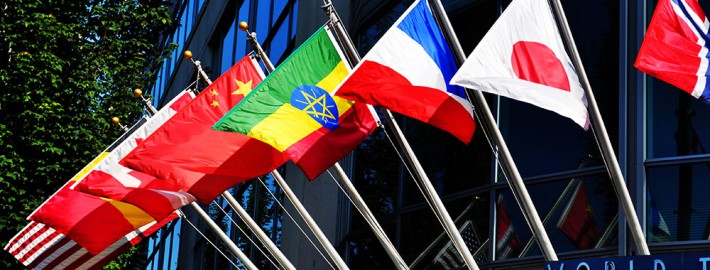Is Your Country Cloud-Ready?
Just as the clouds in the sky have no geographic limits and glide over all borders, we might hope that cloud computing would also be an international phenomenon. At the very least, as the various countries around the world go increasingly digital, cloud computing and real-time data interconnectivity should begin to take on a greater significance worldwide. The question then comes to mind: Which countries are best prepared for cloud computing?
A few weeks ago the BSA Global Cloud Scorecard was released, the first report of its kind. The BSA (Business Software Alliance) positions itself as an advocate for the software industry, and its membership is made up of many leading firms such as Micrsoft, Apple, Oracle, Intel, Siemens, Sybase, and Dell. The Global Cloud Scorecard is an attempt to rate the top 24 ICT (Information and Communication Technology) countries in the world in terms of their readiness for cloud computing.

The 24 countries were evaluated in three broad areas:
1. The legal environment that ensures privacy and security, defines and restricts cybercrime, and upholds the rights of intellectual property.
2. Policies and support for international standards, e-commerce, and free trade.
3. ICT readiness of the general infrastructure, and policies for broadband Internet support.
The printed report provides the detailed scorecard for each country, by category, as well as some graphs for making quick comparisons. The website also features a page in which you can get a verbal summary of the situation, country by country.
Some of the trends that caught my eye included:
Japan is at the top of the chart, as the country is active in cybercrime treaties, IP laws, and international standards. They also have high broadband penetration, and plan to provide access to 100% of households by 2015.
Most European countries scored reasonably well. Germany is near the top, but may drop in the standings if they begin interpreting laws to restrict the flow of data across borders.
The USA is a leader in cybercrime laws, privacy protection good at the individual level, but inconsistent at the state level. The country has high Internet use, but broadband coverage is not consistent.
China, India, Brazil, and Thailand all exhibit a strong and growing interest in ICT, but some significant gaps in privacy protection and cybercrime legislation.
Although there may be a few setbacks, my guess is that all of the countries in the report will have made substantial improvements in their scores in the next few years, and there may be new ones added. We look forward to seeing next year’s report.


